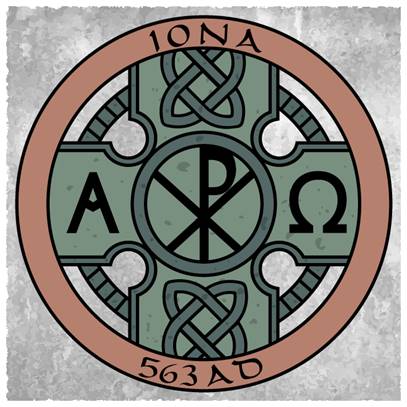Gaelic Spirit of Christian Progress

Gaelic Spirit of Christian Progress
From the Synod of Whitby in 644 the Roman Church with its hierarchical organizational strength and doctrinal determination had been institutionally ascendent compared with the decentralized and organic nature of the Celtic Church. With the long and savage assault of the Northmen against their Abbeys, their holiest treasures and their monks and community members, the physical presence of Gaelic Christianity was weakened. Many Abbeys founded by Gaelic monks throughout Britain and Europe became Roman Catholic, Benedictine or Cistercian.
While the nascent institution of the Gaelic Church declined, the sprint thrived. Scholars and masters of the Greek language, learned at Gaelic Christian schools, like John Scotus Eriugena, brought forward ideals of the Greek civilization of antiquity. Logic and reason rose as foundations for understanding Christian faith, “synthesizing the philosophical accomplishments of fifteen centuries.” Scotus Eriugena succeeded Alcuin as head of the Carolingian Palace School and a direct line can be traced from him, teacher to student, through the Abbey schools and the Cathedral schools to the establishment of the University of Paris and the other great medieval universities – institutions foundational for civilizational progress, completely unique to the West and the gift of the Gaelic Christian spirit of Iona.
Scholastics, or schoolmen, is the name given to those educated among the Abbey schools that preceded the prominent medieval universities. It was another son of Gaeldom, John Duns Scotus, who became the leading proponent and practitioner of this model of scholasticism that dominated intellectual and theological life for 500 years.
Along with delivering faith, literacy and education, a great gift of the Gaelic Church was its curiosity and passion for knowledge. The monks of the Abbeys collected and copied scrolls, manuscripts and books on every topic, from every age and in every language. They translated Hebrew and Greek to Latin, created and copied in their scriptoria, catalogued their manuscript copies in the Abbey libraries, used them in their schools, lent them to the curious and distributed them through their network of Abbeys. The Gaelic Christians were the only ones in Europe with access to, and knowledge of original Greek language and culture. The works of their scriptoria filled their libraries with treasures of antiquity awaiting rediscovery. It was the Spirit of Iona that carried the Faith, and with it literacy, education, knowledge and progress to Britain and Europe.
Scotus
photo credit: Icolmkill House, 2019
